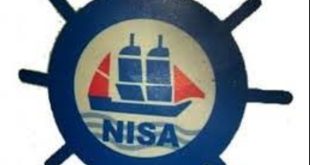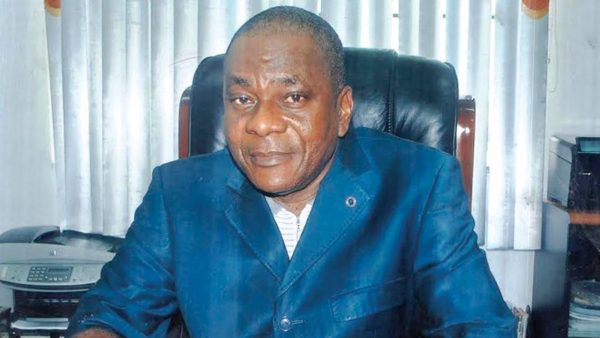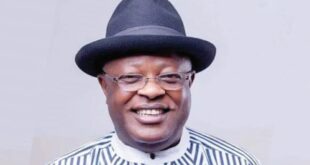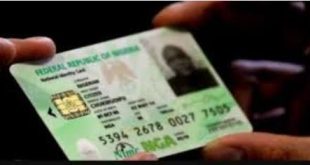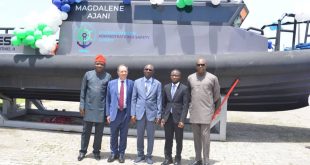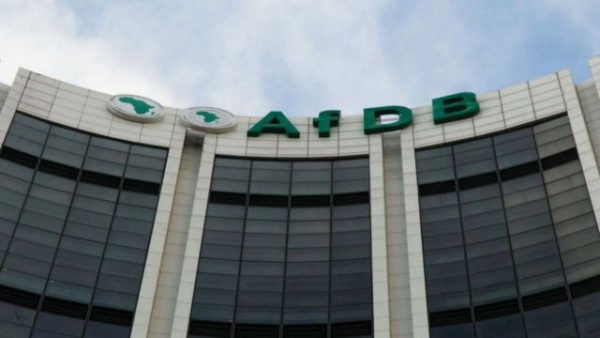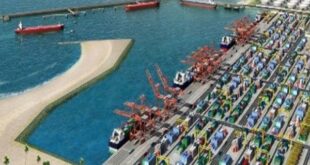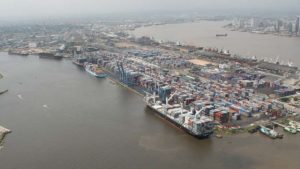
· Senate ignores Amaechi’s plea, endorses anchorage contract
· Experts fault NASS recommendations
By Kenneth Jukpor
Despite legitimate claims by the Nigerian Ports Authority (NPA) and the Minister of Transportation, Hon. Rotimi Amaechi that the operation of Secure Anchorage Area (SAA) by private companies was an additional cost on the nation, the absence of clear legal provisions has left a vacuum that seems to support the operation.
Following the heated jurisdictional battle between NPA and the private SSA operators, Ocean Marine Solutions Limited (OMSL), experts have posited that despite NPA’s wide powers, it is difficult to find any express powers conferring it with jurisdiction to regulate operators in the safe anchorage areas.

While the veterans stress that on matters of security operations, NPA has no security mandate, the findings and recommendations by the Joint Senate Committee hearing on SAA operations, has left more questions than answers on the development.
The legislative report which absolves OMSL of any wrongdoing and refers to its operations as conventional and prevalent in other parts of the world, has stirred more controversy on the subject as port experts disagree that SAA services attract additional cost anywhere in the world.
Mr. Emeka Akabogu, Senior Partner, Akabogu & Associates, told our correspondent that there was no clear law giving NPA the jurisdiction to regulate the anchorage area, given the location outside the ports.
He said: “The question may arise whether the location of the safe anchorage area is within a port or a pilotage district, in which event the Authority may have a claim to powers of regulation over the area. This is not clear” Akabogu said.
“If as advertised, the secure anchorage area is located off the coast of Lagos beyond the Lagos Fairway Buoy, I don’t see how NPA could possibly exercise jurisdiction over it under existing law.”
According to him, the business of NPA is limited to the port environment, even as he posited that the Authority is yet to effectively undertake this responsibility.
“While NPA has the power to regulate traffic within the limits of or approaches to a port, the reality is that the area in contention is outside the conventional definition of these locations. NPA has wide powers under its establishment Act, but despite that, it is difficult to find any express powers conferring it with jurisdiction to regulate operators in the safe anchorage areas as far as security operations go, as it has no security mandate” Akabogu explained.
The Nigerian Ports Act, 1954 had given NPA the responsibility of charting, designating, owning, operating and managing anchorage areas but was silent on the provision or establishment of the Secured Anchorage Area (SAA), as pointed out by the Senate.
Meanwhile, the Chairman, Nigerian Ports Consultative Council, Otunba Kunle Folarin told MMS Plus that the SAA issue was a jurisdictional one, noting that anchorage rests squarely on NPA.
According to Otunba Folarin, comparative analysis to other countries was irrelevant on the subject as the Nigerian law and international conventions ratified by Nigeria were more relevant considerations.
“This is a matter of jurisdiction. It is about the Nigerian maritime jurisdiction and domain. Which agency of government is in-charge of the maritime domain with regards to anchorage? It is NPA. The Nigerian Navy is in-charge of external defense. If something is happening at the ports, the Navy wouldn’t go there because that isn’t its jurisdiction” Otunba argued.
He also argued that the NPA Act also endowed it with the powers for anchorage.
“NPA is to designate a place for anchorage. It is not the place of the Navy or any private company to determine the place to be used as anchorage. It is an hydrographical pact designed by the NPA marine superintendent. In summary, my position is that it is the sole responsibility of NPA to designate a place as anchorage. No other authority or agency can make such decisions, including the Navy” he added.
Speaking with MMS Plus newspaper during an exclusive chat on this, the President, Nigerian Association of Master Mariners (NAMM) Capt. Tajudeen Alao stated that it wasn’t the practice anywhere in the world to have levies attached to anchorage.
“This isn’t the practice around the world as claimed by the Senate. No one pays for secure anchorage anywhere. It is the responsibility of the coastal state to ensure security and the coast guards to assume that responsibility. In this case the Nigerian Maritime Administration and Safety Agency (NIMASA) and the Nigerian Navy should be responsible for this service and it shouldn’t attract additional cost.” Alao said.
According to him, the United Nations Convention on the Law of the Sea (UNCLOS) clarified that provisions for anchorage, search and rescue and pollution control should not attract levies.
“Would you charge a ship at distress before coming to its aid? No! These are some of the issues we take for granted in the country; yet they are seen by the international community and the International Maritime Organization (IMO) as vital indices in appraising the nation’s commitment to shipping and maritime development. These provisions are outlined in UNCLOS” he said.
Looking at the additional cost for SAA, he said: “It is important to note that operators already pay Sea Protection levies to the NIMASA, among others. The charge for SAA which is between $1500 – $2500 is equivalent, if not higher than the insurance of these vessels.”
Meanwhile, maritime experts have queried the rationale behind the approval of $195 investment in maritime security equipment when the nation is being fleeced by private operators under the guise of secure anchorage.
Recall that the Minister of Transportation, Hon. Rotimi Amaechi recently expressed disdain on the operators of the SAA contract in Lagos and other operators, referring to them as the ‘elites’.
Speaking on the fracas between the Ministry and dubious private operators under SAA, Amaechi said; “I want the National Assembly to note that we would fight this war and nobody will stop us. I want to solicit the support of the National Assembly so that when petitions are written to you, you can ask them the right questions before inviting us for further clarification. I’m aware that the issue of anchorage came up at the National Assembly recently. I have written a letter to the Navy to know who gave the private company that contract and the Navy says it isn’t aware. So, why are we being held back for carrying out our responsibilities?”
According to the Minister, some Nigerians have been making money from the system; hence they are out to scuttle the government’s effort to correct the anomalies.
“These people can’t be making money at the expense of the Nigerian economy. For every vessel coming into the country, they charge the importer who also factors in the additional cost in the final prices of goods and services,” he said.
He stated that Nigeria loses $27 billion annually following this development, adding that $7billion is also fleeced for oil bunkering.
“How can we have the Police, Navy and Airforce, yet private individuals are responsible for security of the nation’s waters? The National Assembly would always summon us when we question the status quo and insist that the government could provide this security. Is the National Assembly happy that private individuals are making money off this scandal?” Amaechi queried.
While OMSL claims it has a genuine contract with the Nigerian Navy, the Navy has debunked such claims in its response to the Transport Ministry on the contract.
Meanwhile, MMS Plus investigations on the SAA contract reveal that it was signed in 2012, under the leadership of Mallam Habib Abdullahi as Managing Director of NPA. The contract is also believed to be one of the reasons that led to the sacking of Abdullahi’s predecessor, Engr. Omar Suleiman.
Since the initial SAA contract emanated from NPA, industry observers wonder why NPA doesn’t retain the right to terminate the contract which wasn’t bidded for and didn’t follow due process in line with the Procurement Act, 2004.
If Navy denies having contract with OMSL, how did OMSL get the contract when they also deny having it with NPA?
 MMS PLUS NG – Maritime, Aviation, Business, Oil and Gas News Online Newspaper with coverage in Maritime, Oil and Gas, Aviation, Power and Energy as well as Financial News
MMS PLUS NG – Maritime, Aviation, Business, Oil and Gas News Online Newspaper with coverage in Maritime, Oil and Gas, Aviation, Power and Energy as well as Financial News



